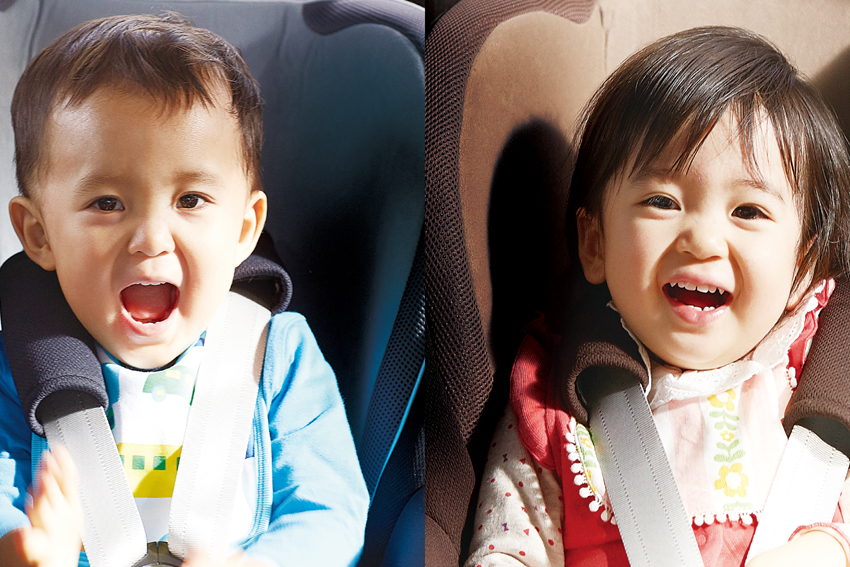A multifaceted Japanese supplier of innovative glass, chemical, ceramic and electronic products puts people and the planet first and gains an international seal of approval.

In December 2015, Tokyo-based AGC Asahi Glass (AGC), a world-leading manufacturer of glass, chemical and high-tech electronic materials, gained the Skin Cancer Foundation’s Seal of Recommendation for its recently launched UV Verre Premium Privashield™ product. The dark-tinted privacy glass for automotive rear doors and windows cuts ultraviolet (UV) rays entering a vehicle by around 99% and also protects against infrared (IR) penetration.
The Skin Cancer Foundation is the only international organization devoted solely to education, prevention, early detection, and prompt treatment of the world’s most common cancer, and its Seal of Recommendation is a global symbol of safe and effective sun protection.
In combination with the company’s highly praised UV-reducing glass for front windshields and front door windows – first launched in 2010 and all of which have earned AGC the Seal of Recommendation – it has become the first company in the world to offer automobile interior spaces enclosed in all directions (front, side and rear) by automotive glass bearing the Skin Cancer Foundation’s Seal of Recommendation. So consumers can now enjoy an approximate 99% UV cut through all windows, protecting the skin of not only the driver and front seat passenger but also the rear seat passengers.

The achievement fits in with the company’s new management policy, AGC plus, through which AGC is committed to contributing to the safety, security and comfort of the world through continuing to improve its varied product range. “What I would like to accomplish under AGC plus is not something difficult or complicated; it is very plain and simple in fact,” explains Takuya Shimamura, President and CEO of AGC. “We manufacture products and offer value to society. We offer new functions, new products, and new value to customers, and we hope to reach different customers. Also people who are producing these products need to have job satisfaction.”
Innovative product development and adding value to society form the bedrock values on which the company was established. It was founded in 1907 by Toshiya Iwasaki, the second son of the second president of the original Mitsubishi Corporation. With more than a century of technological innovation behind it, AGC has grown to become a global supplier of flat, automotive and display glass, chemicals, and high-tech electronics and components, employing some 50,000 people and exporting to countries all around the world.
“Our founder believed in product effectiveness and usefulness, and wanted to produce technology that contributes to society,” says Mr Shimamura. “We produce highly qualified and highly reliable products that still today reflect the spirit of our founders, which is to embrace technology and to embrace challenge. If the purpose was only to make profit then certainly our founder would have chosen another business.”
This, however, is not to say altruistic beliefs come at the expense of profitability. AGC’s operating profit at the end of Q3 2015 rose to ¥51 billion, an increase of more than 20% year on year. Mr Shimamura is confident that AGC will end the current Japanese financial year with more than ¥70 billion in profits, and aims for the following year to reach ¥100 billion and generate net sales of ¥1.6 trillion, with ROE above 5%.
Intensifying global pressure to better manage the planet’s energy resources is increasing demand for efficient, effective products that reduce energy consumption and carbon dioxide emissions, particularly in the automotive and construction sectors. The worldwide market for energy-efficient glazing is expected to reach $5.81 billion by 2020, at a compound annual growth rate (CAGR) of 19.5% between 2015 and 2020. Consumers are becoming increasingly aware that switching to double or triple-glazed windows with low-emissivity glass (or low-e glass as it is commonly known), whereby the glass pane is coated with a special metallic film to reduce thermal emissivity, makes a huge difference in the overall energy use – and consequently running costs – of a building. According to the US Department of Energy, by using such energy-efficient solutions, energy consumption can be reduced by almost 40%. All of which is bodes extremely well for producers, such as AGC, whose eco-friendly business practices have been underpinning its diverse glass, chemical, ceramics and electronic activities for decades.
0 COMMENTS